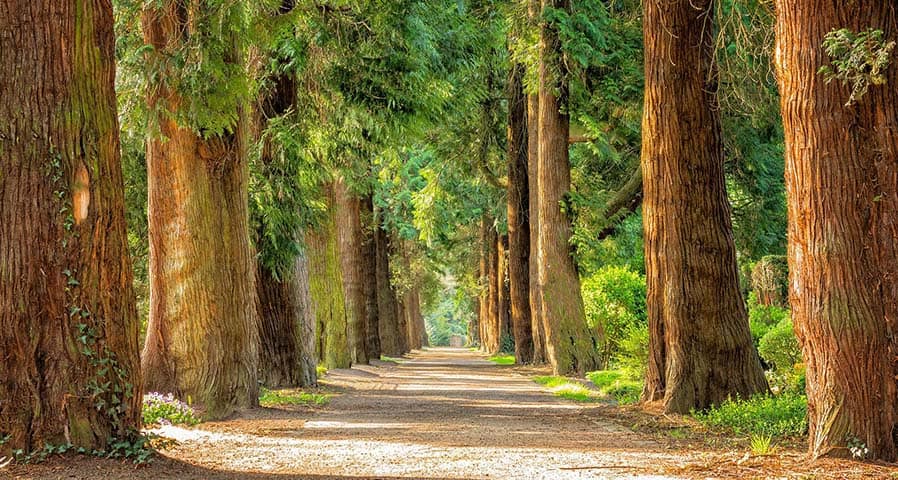Electric vehicles are a great option for a National Park road trip. EVs are environmentally friendly and also efficient. EVs, help to reduce air pollution and can aid in preserving the quality of the parks’ natural resources. Electric vehicles can also help the National Park Service (NPS) meet its set goals in the Green Parks Plan.
Benefits of EVs
It’s estimated that 18.7 million EVs will be on U.S. roads by 2030. Some of the advantages EVs have over fossil-fuel-powered vehicles include,
- Improved energy efficiency
- Reduced or zero tailpipe emissions
- Lower greenhouse gas emissions
- Ability to use green energy (wind or solar) for charging
- Lower vehicle operating costs
- Reduction in noise pollution
All of this benefits our National Parks.
Public EV Charging Stations in National Parks
Even long-distance electric vehicles require charging whether it’s a plug-in hybrid or battery-powered EV. To support EV drivers, the National Parks system is taking steps to provide charging for the public and to support NPS electric fleets.
Finding Public EV Charging Stations
To help ensure a smooth National Park Road trip for EV drivers, the NPS has been working to install around 100 EV chargers. Some of the parks benefiting from the charging infrastructure include Death Valley National Park and Golden Gate National Recreation Area. Even the Grand Canyon National Park is home to EV chargers.
Types of Chargers Available in National Parks
America’s National Parks use both networked and non-networked EV chargers. The primary difference between the two types is the payment method. Networked EV chargers accept multiple forms of payment which includes credit cards, cash, and even paying through an app.
Non-networked chargers typically use codes as a form of payment. At the park entrance, visitors can pay for a code to keep their EVs fully charged.
The NPS also uses different types of EV chargers which include,
- Level 1 slow chargers for park employees and the NPS electric fleet
- Level 2 chargers are faster and are typically found in public and employee parking lots
- DC fast chargers are also available for use by park visitors.
Designing an EV charging infrastructure to support public charging can be a monumental task. But federal and state grants are making the process a bit easier (at least financially). One of your first stops on our website should be, Where to Look for Federal Grants and Rebates for EV Charging Infrastructure.
Challenges of Installing Public EV Charging Stations
Working with the National Renewable Energy Laboratory, the Department of Energy’s Vehicle Technologies Office, BMW, and the California Energy Commission, the NPS is working to increase its EV charging infrastructure, but parks also face a few challenges.
Limited Access to Electricity
Access to electricity is limited in some remote areas but parks are learning how to compensate for the issue. Along with installing public EV charging stations near visitors’ centers and en route to the park, they are also taking advantage of green energy sources like solar and wind-powered EV chargers.
Preserving Historical Locations
Any site listed on the National Register of Historic Places requires permits and approvals before any changes can be made. To preserve the park’s history and scenic beauty, parks are limiting the charging infrastructure to parking lots and other public places.
Collecting Fees
Federal law requires entities to collect fees for the use of EV chargers. Partnering with other organizations to cover charging costs can eliminate the need for visitors to pay a fee. The use of solar-powered chargers can also reduce electricity usage costs while also helping the NPS meet its environmental goals.
Extreme Weather Conditions
The National Parks often experience extreme weather conditions. Hot summers and freezing winters can affect the operating lifespan of EV chargers. Removing snow around the chargers in the winter can help reduce maintenance and replacement costs. It’s also a good idea to plan any installation products when the ground isn’t frozen.
Take a National Park Road Trip in your EV
The NPS is installing EV chargers across the country and plans on adding more infrastructure. With public EV charging stations at most parks, you can enjoy a drive without worrying about depleting your battery.
To discuss EV chargers and their infrastructure with one of Apogee Charging Solutions experts, by calling 484-816-2076, emailing [email protected], or schedule a call that fits your needs by clicking the button below.








0 Comments